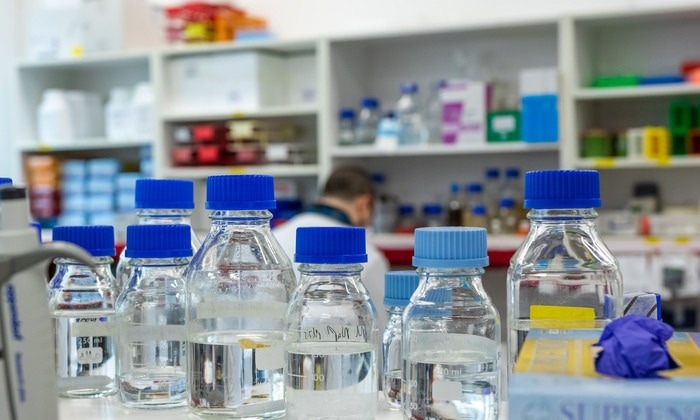Researchers have found a new way to use biocatalysis to improve the production of critical raw materials required for essential drugs, making the process quicker, more efficient, and environmentally friendly.

Image Credit: University of Manchester
Biocatalysis is a process that uses enzymes as natural catalysts to carry out chemical reactions. Scientists at The University of Manchester and AstraZeneca have developed a new biocatalytic pathway that uses enzymes to produce nucleoside analogues, which are vital components in many pharmaceuticals used to treat conditions like cancer and viral infections.
Typically, producing these analogues is complicated, time consuming and generates significant waste. However, in a new breakthrough, published in the journal Nature Synthesis, the researchers have demonstrated how a "biocatalytic cascade" — a sequence of enzyme-driven reactions — can simplify the process, potentially cutting down production time and reducing environmental impact.
The use of biocatalysis for greener, more sustainable drug development and manufacturing is growing. Our works shows that by replacing traditional chemical methods with enzyme-driven reactions, we can produce complex products in an efficient manner. We hope that with continued development this platform will serve as a route towards a greater range of nucleoside-based drugs.”
Matthew Willmott, Manchester Institute of Biotechnology, The University of Manchester
The researchers engineered an enzyme called deoxyribose-5-phosphate aldolase, enhancing its range of functions to efficiently produce different sugar-based compounds, which serve as building blocks for nucleoside-based medicines, such as oligonucleotide therapeutics. These building blocks were combined using additional enzymes to develop a condensed protocol for the synthesis of nucleoside analogues which simplifies the traditional multi-step process to just two or three stages, significantly improving efficiency.
With further refinement, this method could help streamline the production of a wide range of medicines, while significantly reducing their environmental footprint. The team are now continuing this work with the MRC funded Nucleic Acid Therapeutic Accelerator (NATA) manufacturing challenge, which looks to develop sustainable biocatalytic routes towards functionalized nucleosides, nucleotides and oligonucleotides.
Source:
Journal reference:
Willmott, M., et al. (2024). An engineered aldolase enables the biocatalytic synthesis of 2′-functionalized nucleoside analogues. Nature Synthesis. doi.org/10.1038/s44160-024-00671-w.